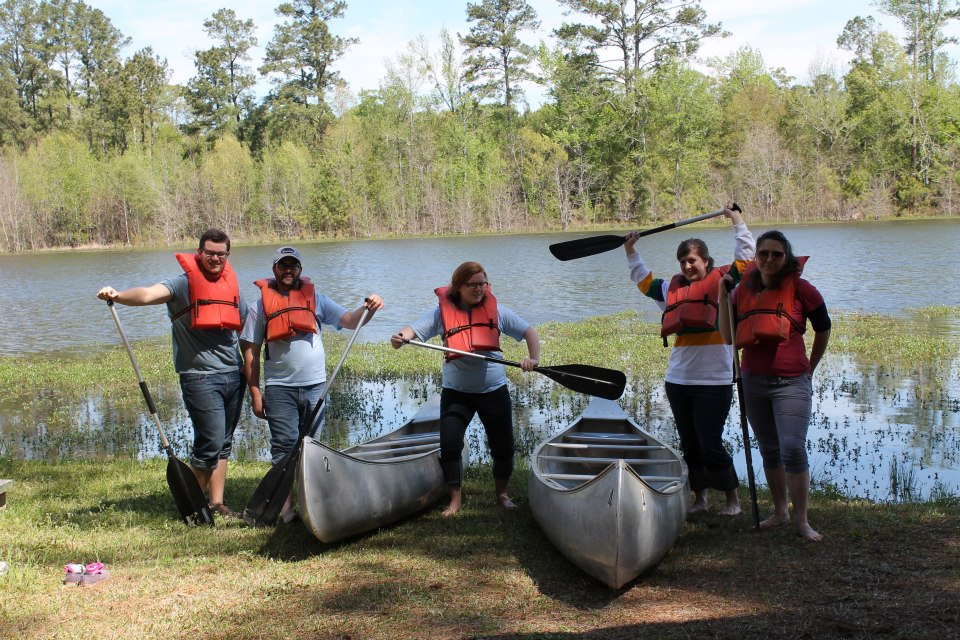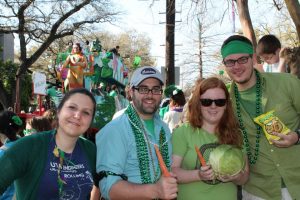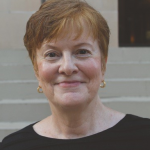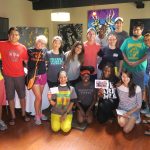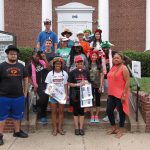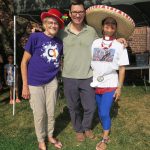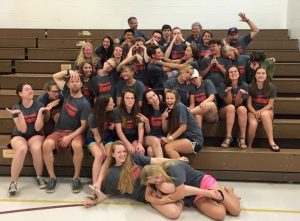Classes at 9:15AM in the Assembly Room unless otherwise noted.
Economic Inequality and Health in the US: What is Going On?
Angus Deaton
Anne Case
October 2
What are the potential economic causes and consequences of the increasing mid-life distress and rising death rate among white Americans between 1999 and 2013? Angus Deaton and Anne Case identified this alarming trend in 2015, a change that reversed decades of progress in mortality and was unique to the United States; no other rich country saw a similar turnaround. The trend was especially sharp for those with only a high school education. Come and ponder what is going on and what might be done.
Angus Deaton is Dwight D. Eisenhower Professor of Economics and International Affairs at Princeton University’s Woodrow Wilson School where he has taught for over thirty years.
Anne Case is the Alexander Stewart 1886 Professor of Economics and Public Affairs at the Woodrow Wilson School of Public and International Affairs and the Economics Department at Princeton University.
1st Corinthians In-Depth
George Hunsinger
9:15 AM, Maclean House, ongoing through May 21
George Hunsinger returns for the 20th year to lead this verse-by-verse examination of the First Letter of Paul to the Corinthians. Bibles are available for use during the class. Find them on the Deacon Desk by the church kitchen. Class meets next door in Maclean House (Garden Entrance).
Mass Incarceration
Jonathan Shenk, moderator
October 9
The skyrocketing prison population over the past 25 years has become a bi-partisan issue with both Republicans and Democrats looking for ways to reduce the prison population and address racial disparity within the criminal justice system. Consider the challenges faced by those returning from prison into their communities, and discover tangible, hands-on opportunities to minister to those who are caught up in the prison system.
Jonathan Shenk is a member of the New Brunswick Presbytery’s Mass Incarceration Task Force and the Princeton/Trenton chapter of the Campaign to End the New Jim Crow. He is a member-at-large of the New Brunswick Presbytery, regularly worships at NPC, and has served as a volunteer prison chaplain.
Mary Beth Charters has been a member of NPC for 20+ years and is an active member of the Campaign to End New Jim Crow and Not in Our Town Princeton.
William (Bill) Stoltzfus is an elder at Nassau Church and member of the Mission and Outreach Committee. His focus is urban mission and interfaith outreach in the context of teaching and tutoring.
Who Is Jesus in Asia?
Chikara Saito
Sundays, 9:15 a.m., in the Music Room
October 9 – 30
Who exactly is Jesus in Japan? What does it mean that Jesus is the Christ for the Dalit in India? We will examine texts — hymns, sermons, essays, books — from our sisters and brothers in Japan, South Korea, Cambodia, and the Dalit, as we attempt to understand who Jesus is within these Christian communities.
October 9: Encountering Jesus in Japan
October 16: A God in Pain?
October 23: Missional Presence of an Aisan in Asia
October 30: Kagawa Toyohiko’s Meditations on the Crucifixion
Chikara Saito is a second year Master of Divinity student at Princeton Theological Seminary. Chikara grew up in Japan and had numerous opportunities to worship and work with Christians throughout East and Southeast Asia. You can connect with Chikara via email: .
American Perceptions of Muslims and Terrorism
Christopher Lojek
October 16
Is the American military and our political attention focused more on regional players (Iran, Turkey and Saudi Arabia) or on Muslims and ISIS? Come and examine the conflicts in the Middle East in a broad context, focusing on asking the right questions. Unless we understand what the problems are, we will struggle to answer the big questions.
Christopher Lojek is a Presbyterian from the First Presbyterian Church in Moorestown, NJ. He currently works in Emergency Communications, attempting to expand into nuclear facilities and mitigation projects to assist the state in getting better prepared for natural and human-made disasters.
Sharing Shoestrings
Monique Misenga Mukuna
Antoinette Muleka Tshisua
October 16
12:00PM, Assembly Room
Come for an eye-opening visit with leaders of Woman, Cradle of Abundance, a non-profit in the Democratic Republic of Congo founded and run by an ecumenical group of Congolese women to address violence against women and female poverty. Hear about the rescue of destitute children, girls trapped in force prostitution, widows living with HIV/AIDS – amazing stories of people empowered to take hold of their own lives with dignity.
Monique Misenga Mukuna is the president and a church leader who has served at the local, regional, and international levels while supporting herself and her family as a teacher and business woman.
Antoinette Muleka Tshisuaka is director of medical work, a nurse, teacher, and leader of the Association of Widows of her denomination.
What Does the U.S. Supreme Court Do?
Keith E. Whittington
October 23
The U.S. Supreme Court is an important component of the government, but it is far less visible than the elected branches. With the death of Justice Antonin Scalia, the Court is at a turning point, and so understanding what it does and the politics surrounding the Court and judicial appointments is particularly important now. Come and explore the history of the court, what it does, what role it plays within the constitutional and political system, and the politics currently surrounding it.
Keith E. Whittington, the William Nelson Cromwell Professor of Politics at Princeton University, has published widely on American constitutional theory and development, federalism, judicial politics, and the presidency. He is the author of numerous books and articles including Political Foundations of Judicial Supremacy: The Presidency, the Supreme Court, and Constitutional
Leadership in U.S. History.
Faith and Politics through Presbyterian Eyes
Joyce MacKichan Walker, moderator
October 30
Join a panel of Nassau’s own and friends as Presbyterians identify election issues of particular importance, and describe how one’s Christian faith guides action and advocacy in the political arena. Joyce MacKichan Walker will serve as moderator as we frame our dialogue with Seeking to be Faithful: Guidelines for Presbyterians in Times of Disagreement.
Panel members are:
- Daniel Migliore – Emeritus Professor of Theology at Princeton Theological Seminary. Daniel and Margaret have been worshiping at Nassau for many years!
- Mark Herr – Head of Corporate Communications of Point72 Asset Management, headquartered in Stamford, Connecticut. Mark has been a member of Nassau for 30 years.
- Shari Oosting – Program Administrator at Continuing Education at Princeton Theological Seminary, and a graduate of the seminary. Shari and family have been at Nassau for about 6 years.

